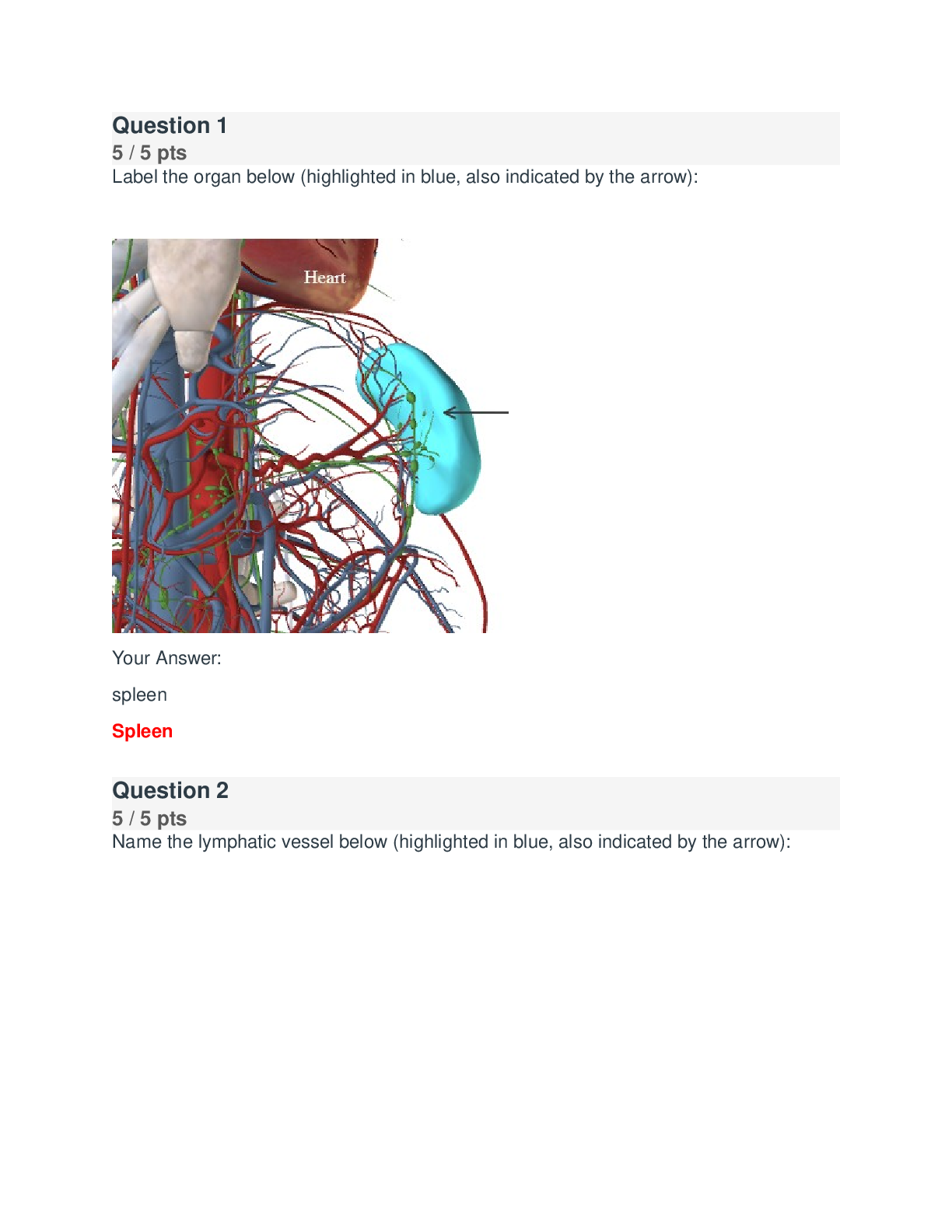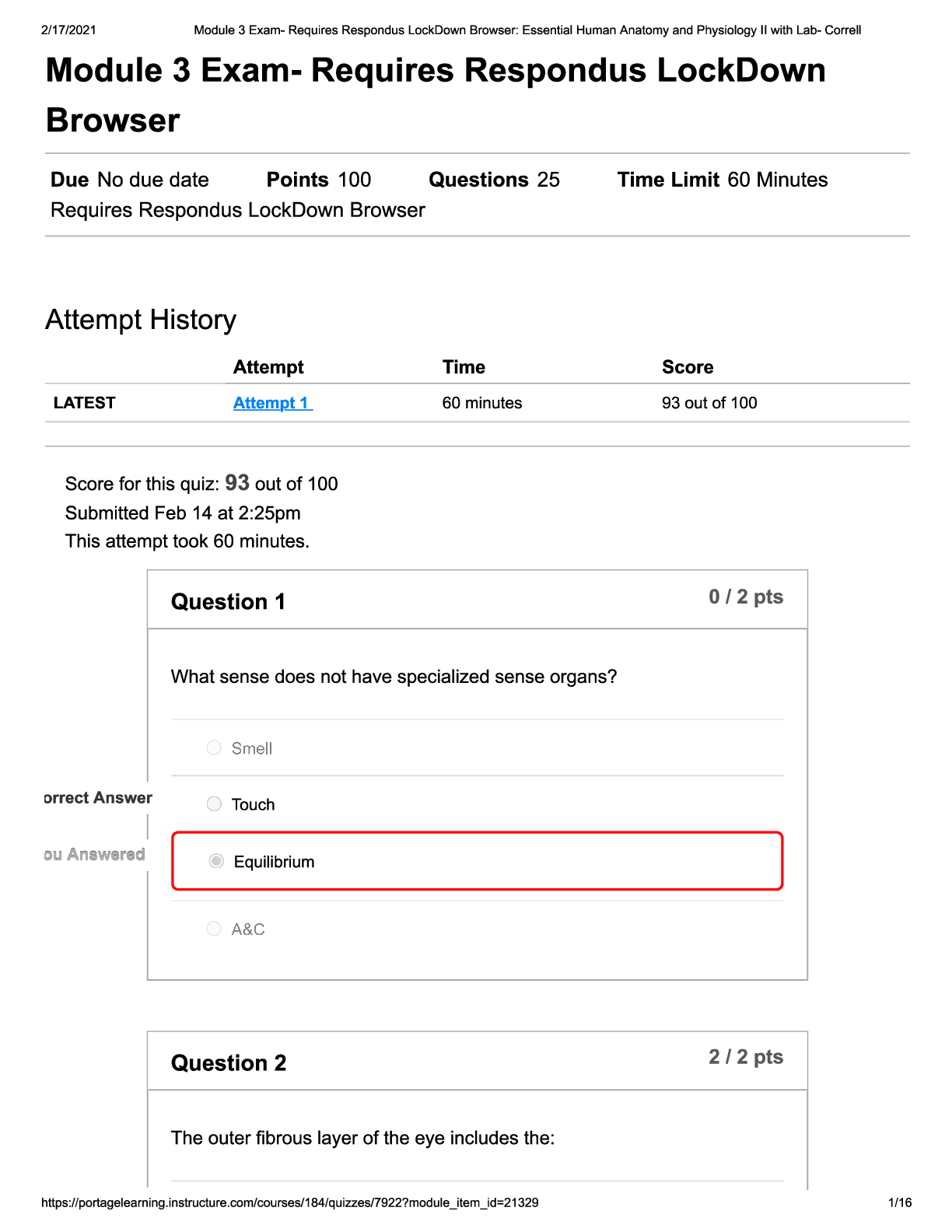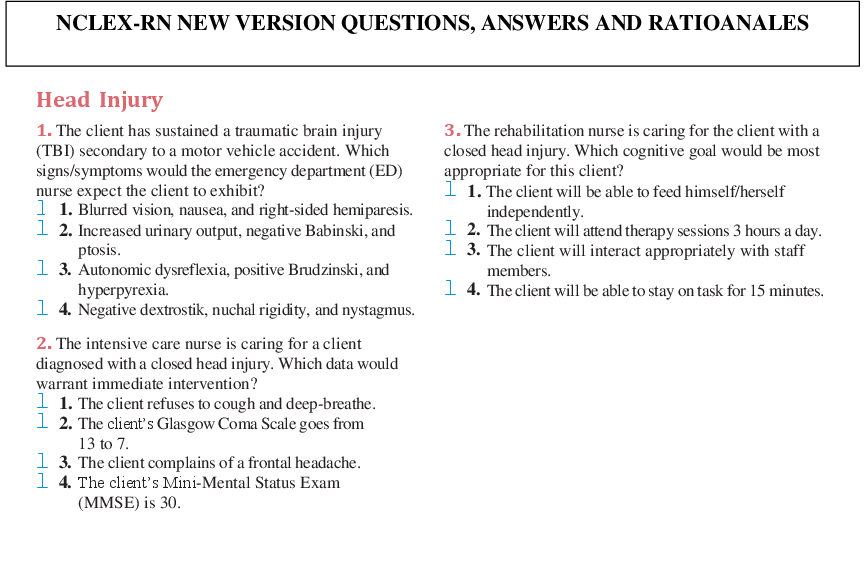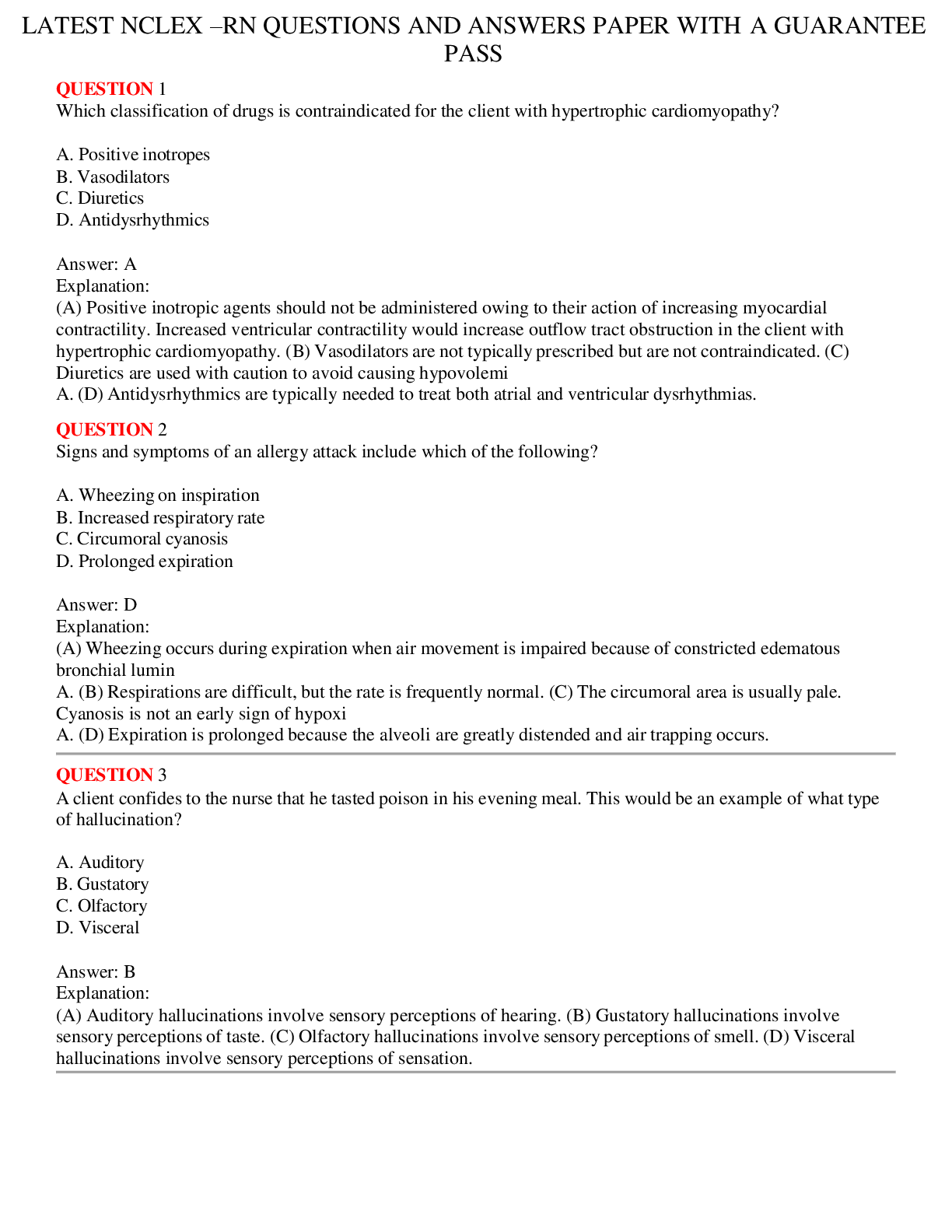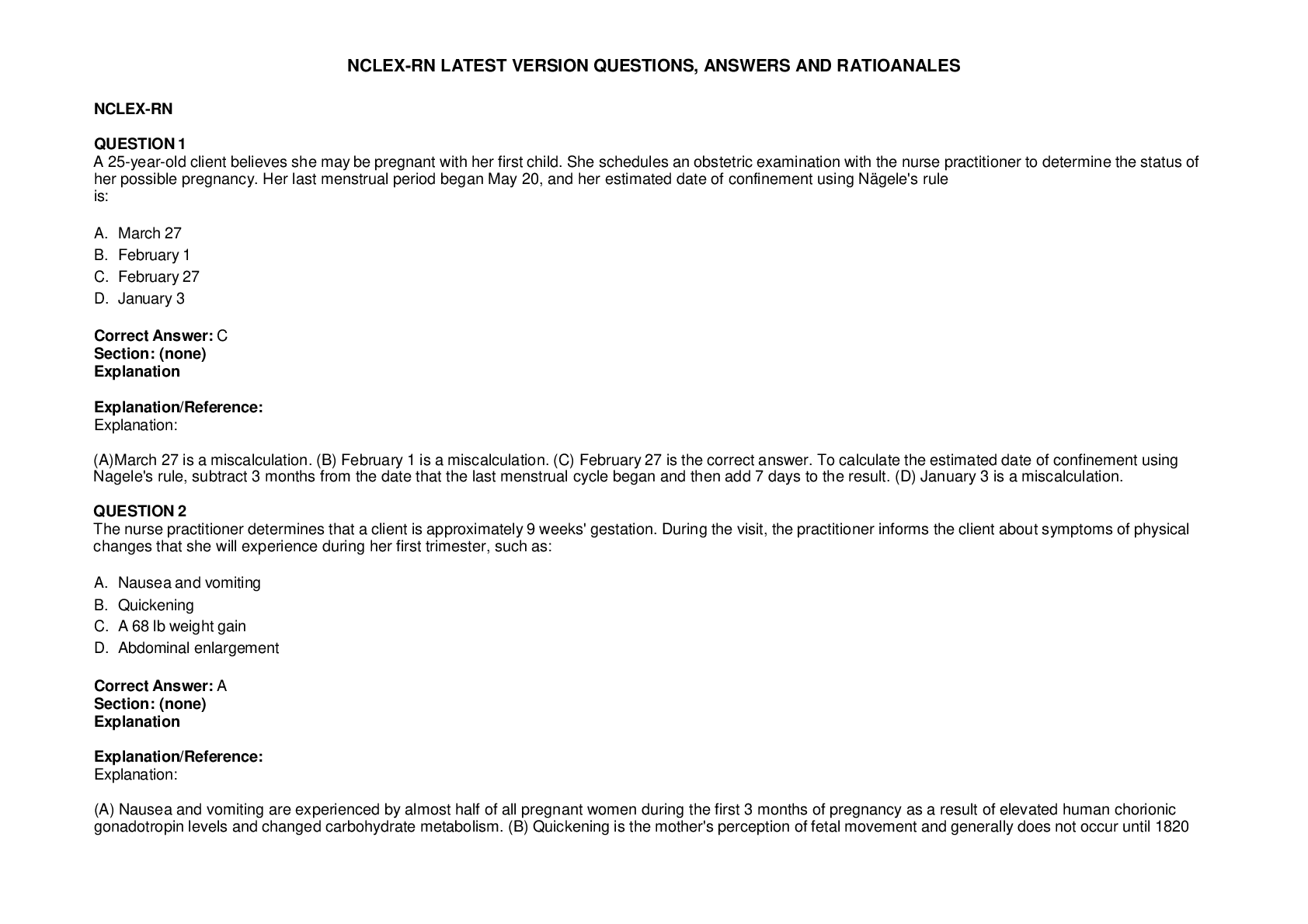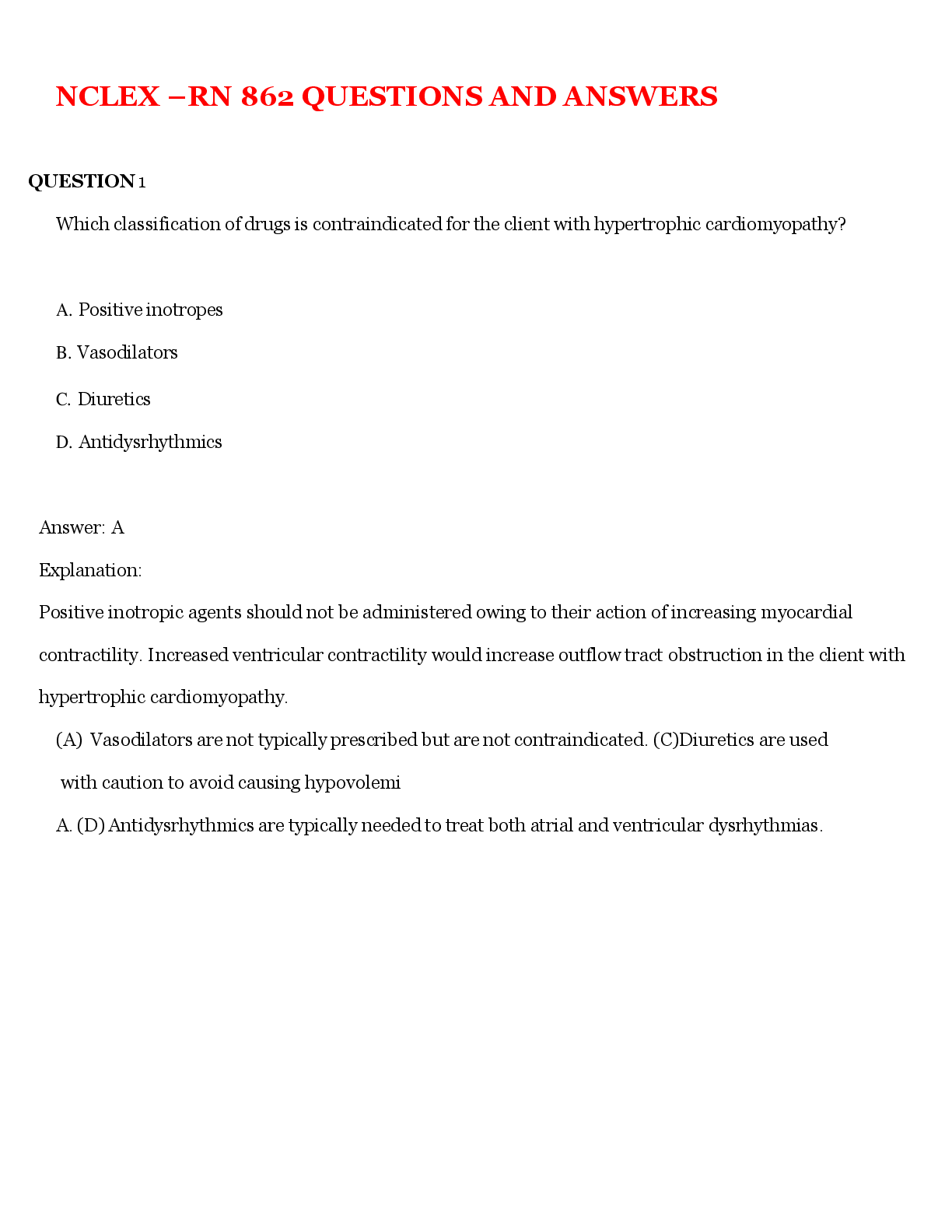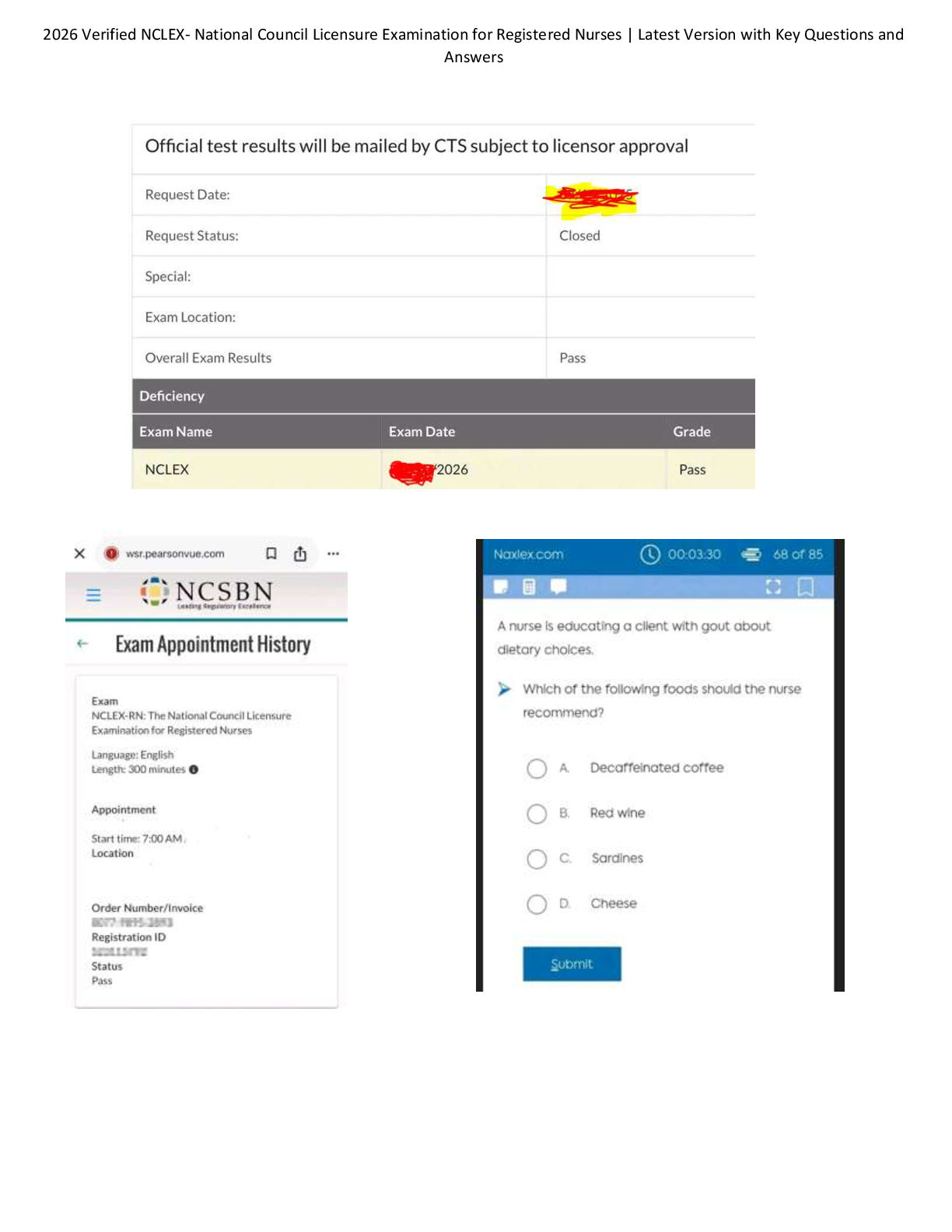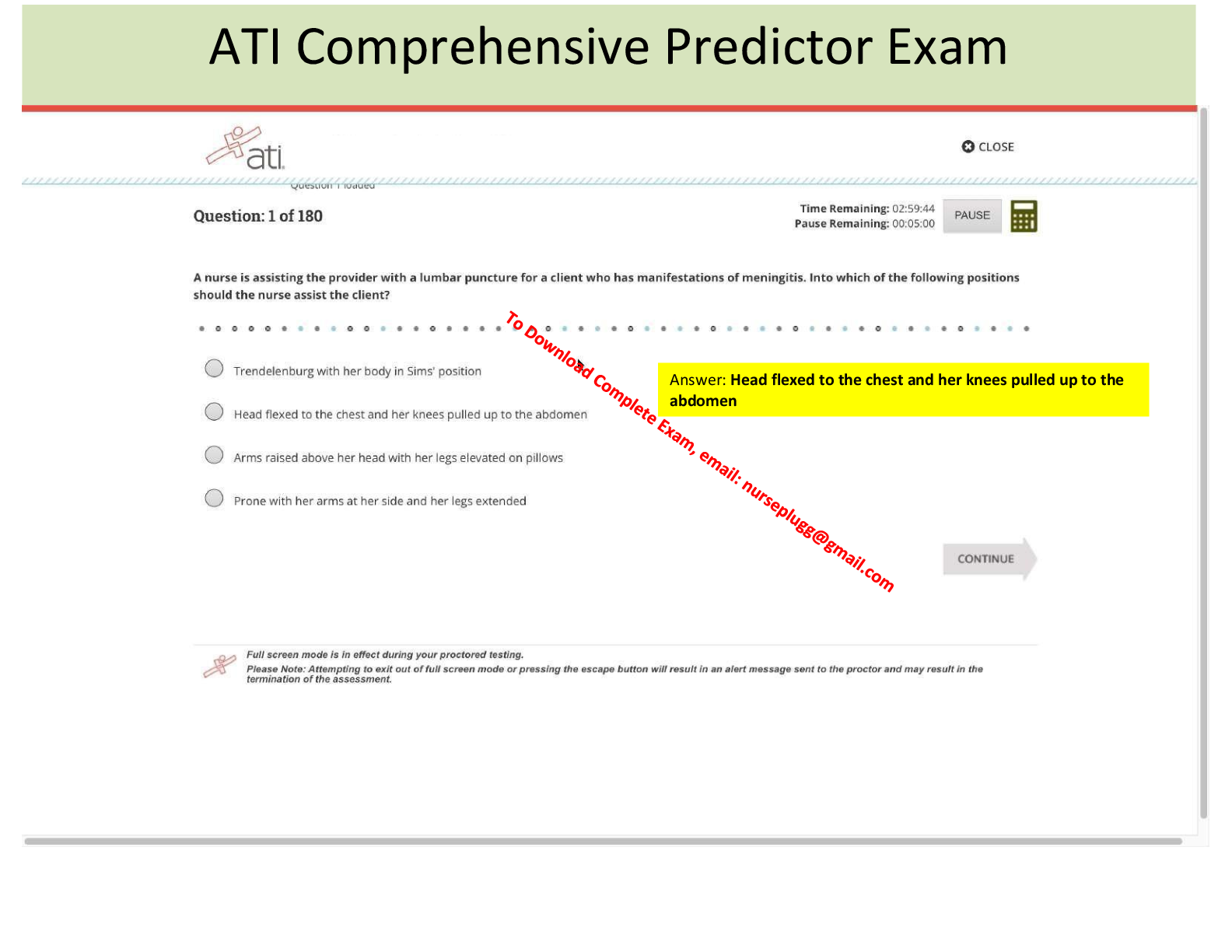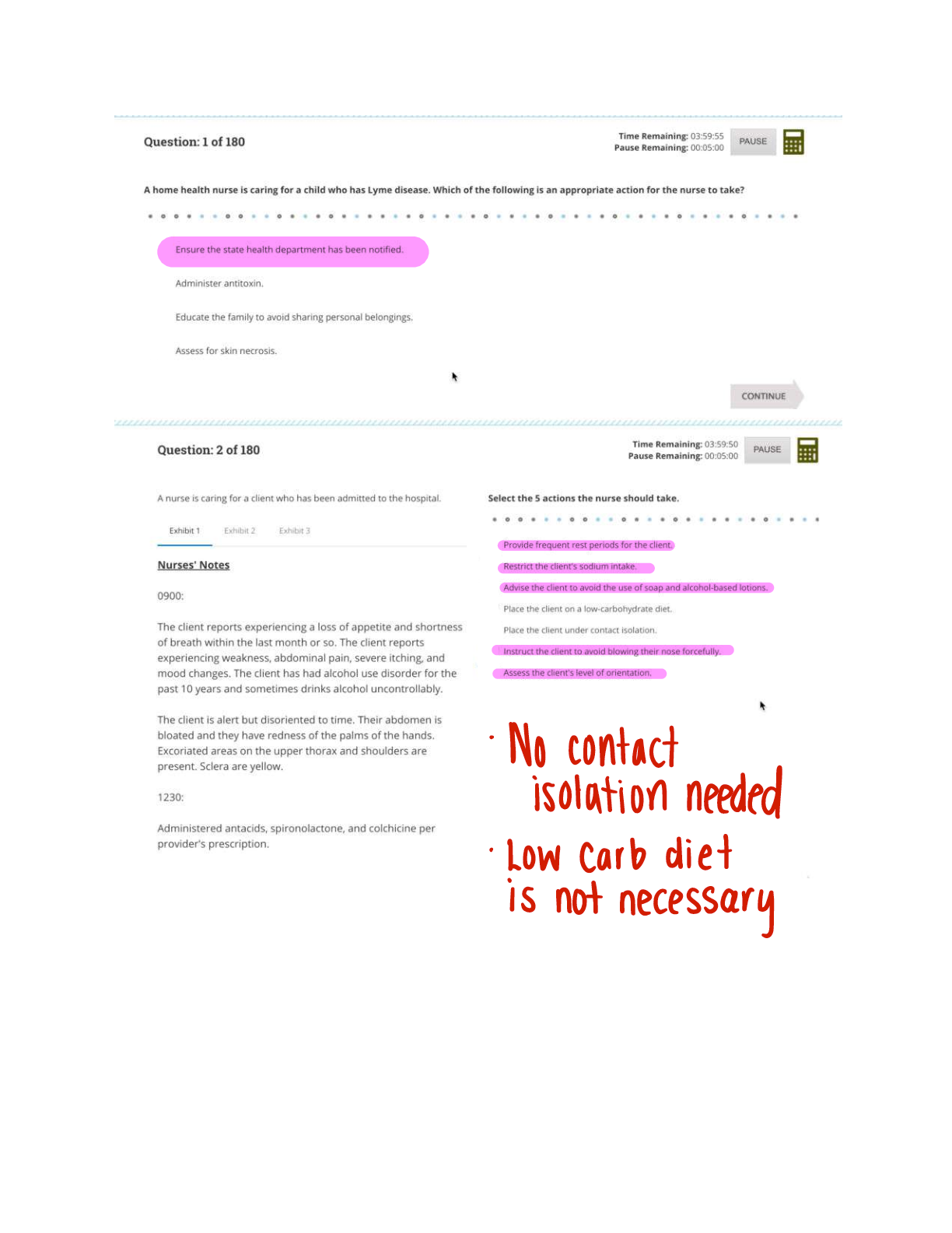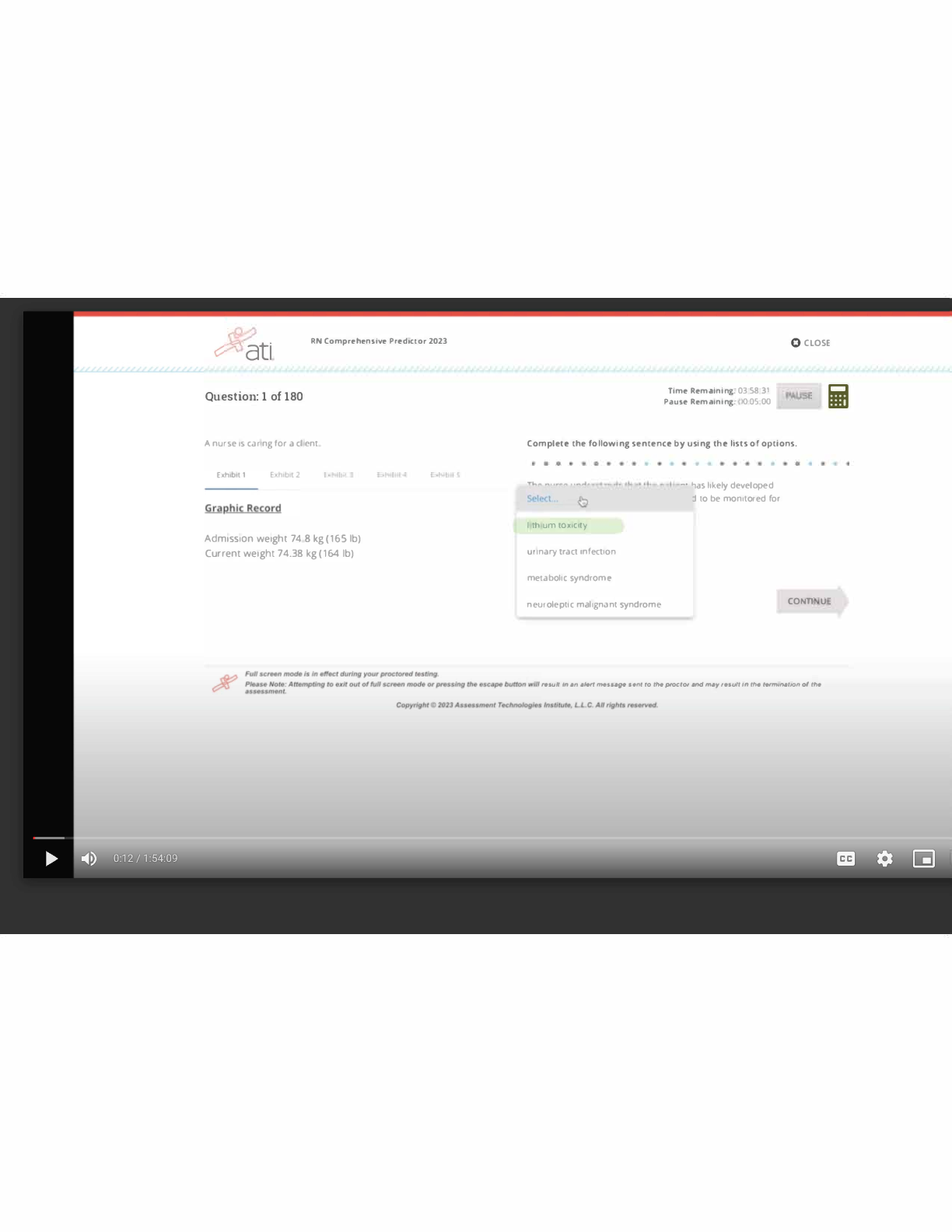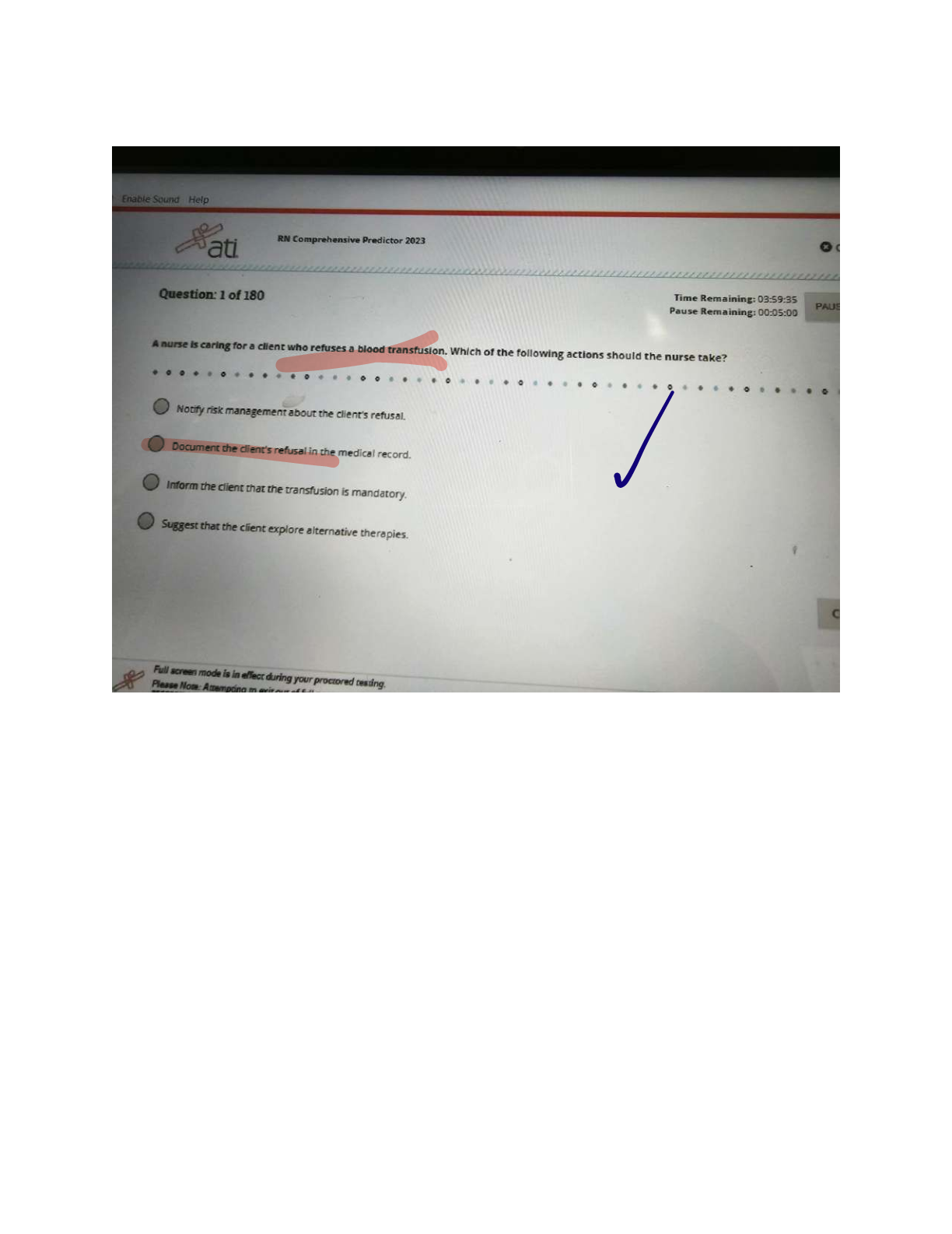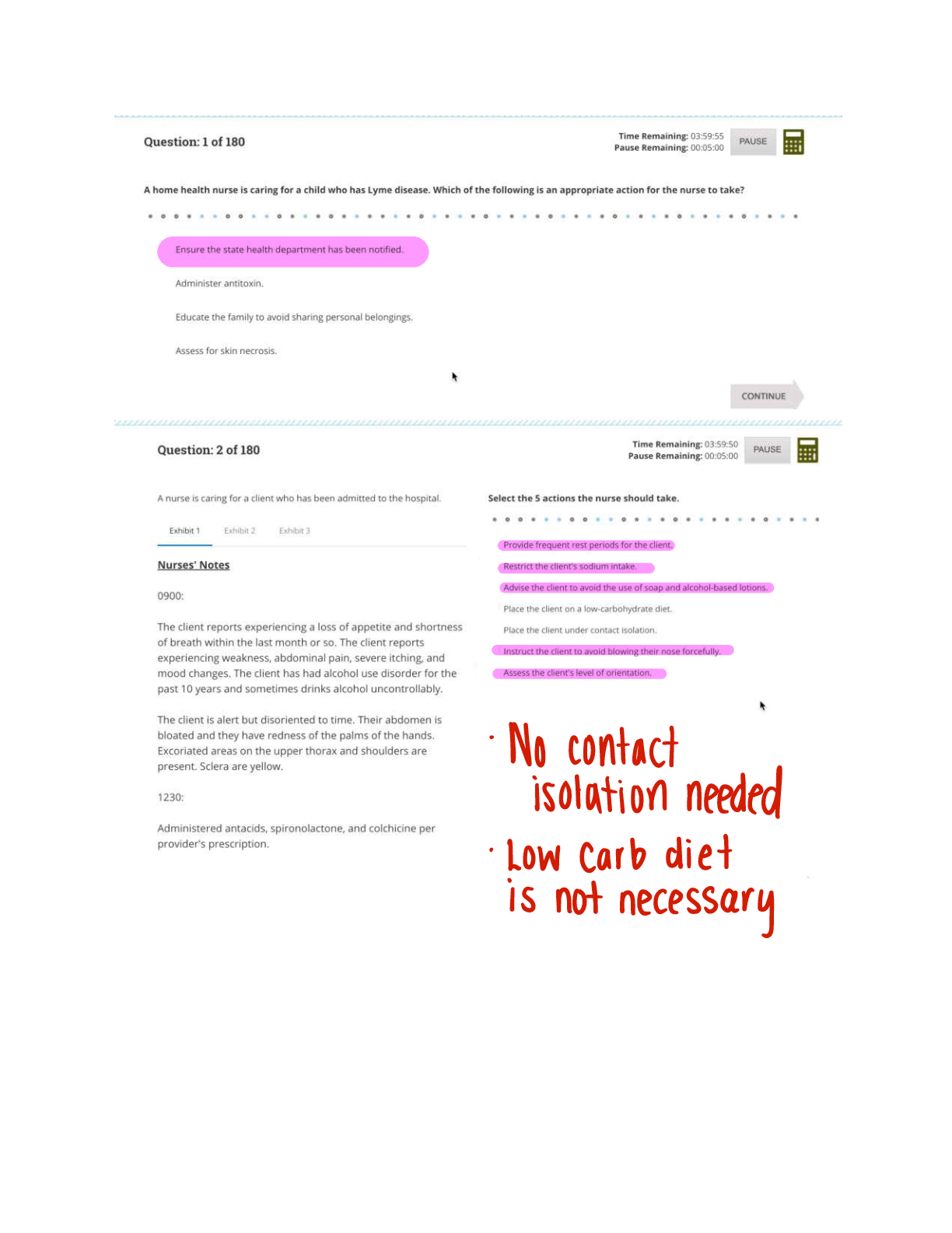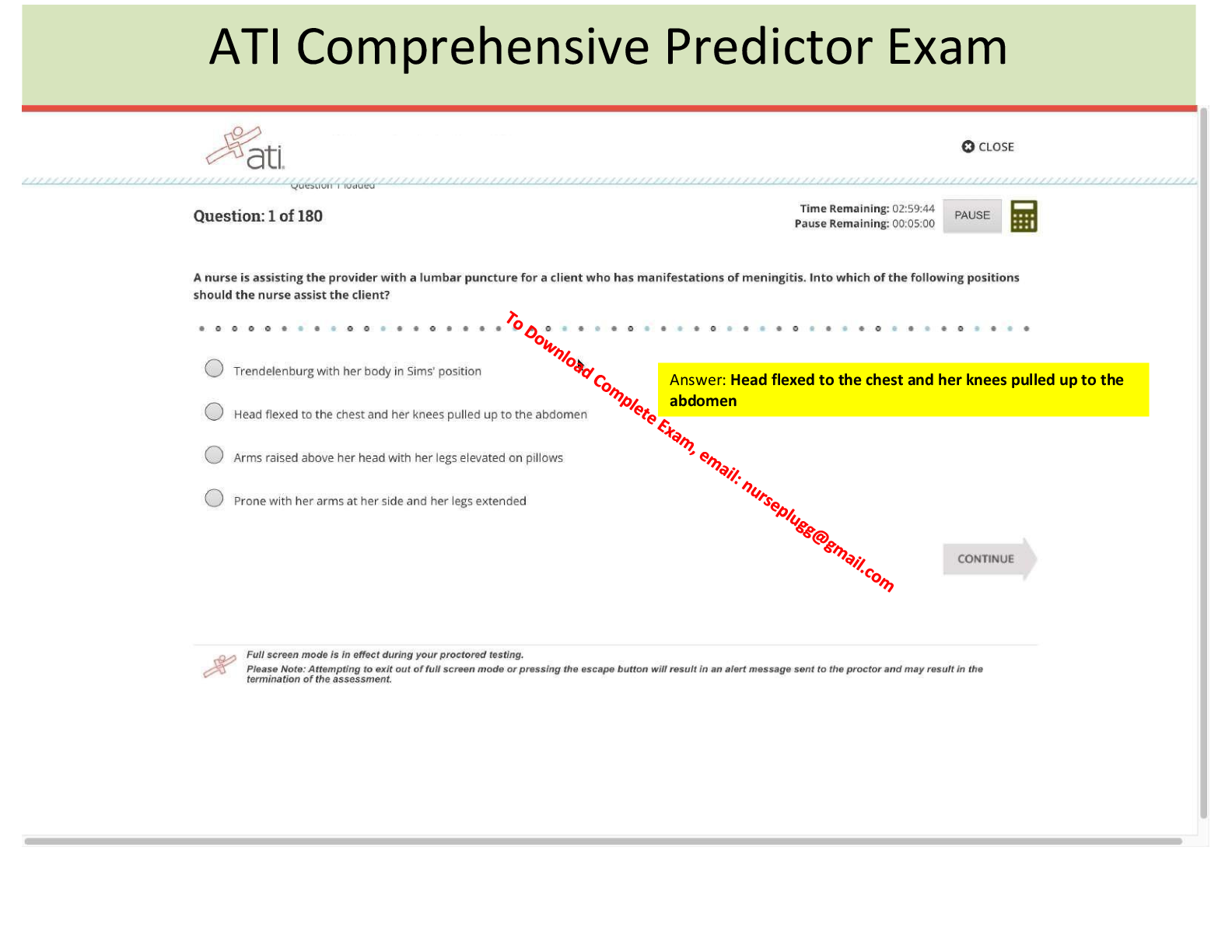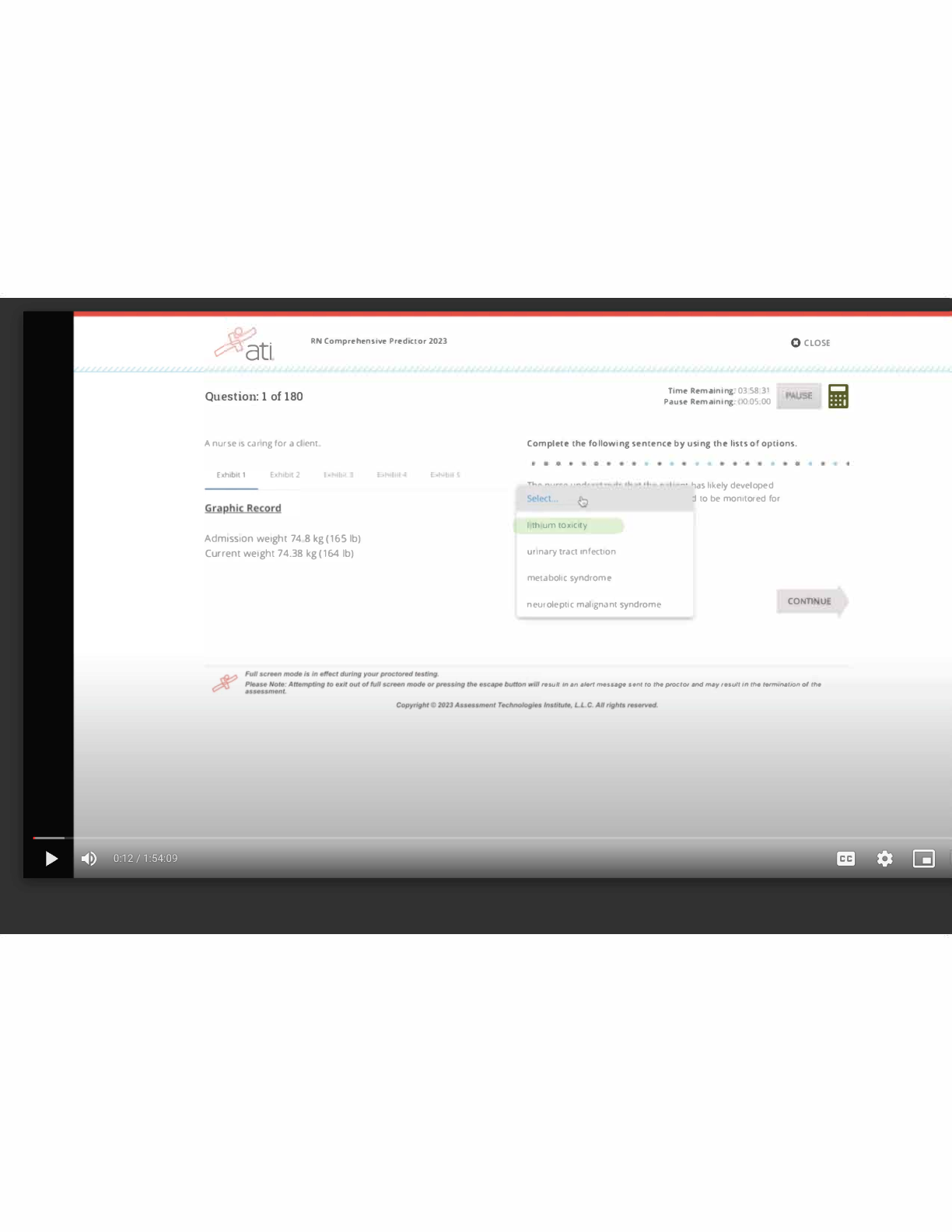A PMHNP has been treating a 9-year-old patient who was referred by her school. Students are asked to raise their hands before speaking during group discussion, but the patient seems to blurt out what she wants to say wit
...
A PMHNP has been treating a 9-year-old patient who was referred by her school. Students are asked to raise their hands before speaking during group discussion, but the patient seems to blurt out what she wants to say without being called on. She also interrupts other children while they are talking instead of waiting her turn. When the patient gets frustrated, she has trouble controlling her emotions and cries often. Based on the initial information provided, the first focus by PMHNP is the child’s ____________.
The PMHNP is caring for a patient who experiences depression caused by the traumatic experience of her dog passing away. She reports not being able to eat or sleep, and sometimes doesn’t want to leave the house at all. Which statement is most appropriate for the PMHNP to maximize the patient’s adaptive coping mechanisms?
A PMHNP is using Gestalt therapy to communicate with a 50-year-old patient who is going through a divorce. As he is calmly sharing the details of his divorce, the PMHNP notices that Dave is tapping his fingers on his legs. What is an appropriate response by the PMHNP using the technique of focusing?
The PMHNP is meeting with an older, female adult patient and her daughter. The patient has early onset dementia. The daughter expresses concern, saying, “I don’t want you to just stick my mother in a home and give her medicine. I’m worried that’s what people are going to want to do.” What is the best response by the PMHNP to the daughter?
A PMHNP is treating a 10-year-old boy who is exhibiting signs of aggression and attention problems. What type of intervention will the PMHNP consider using a common elements approach?
A 35-year-old male patient is being treated for alcohol addiction. He asks for the PMHNP’s cell phone number to use in case of an emergency. When the PMHNP responds that giving her number would be against therapeutic rules, the patient threatens an act of violence to the therapist. What would be the most appropriate response by the PMHNP?
The PMHNP is caring for an adult male patient whose wife left him several months ago. He recently learned that his ex-wife is dating someone much younger. The man feels belittled, sad, and lonely. He talks about trying to meet other women, but says, “I can’t compete with the younger guys these days, with the cool clothes and the vegan diets. I’m bald and overweight, and what woman is going to want to be with me?” How does the PMHNP help raise the man’s self-esteem?
The PMHNP uses therapeutic communication skills while ensuring that the patient understands that he has choices. The PMHNP comprehends and practices motivational interviewing. Nurs 6640 final exam This is best understood as which of the following?
The PMHNP is terminating treatment for a patient who has been receiving eye movement desensitization and reprocessing (EMDR) therapy. What action does the PMHNP take at the final session to terminate treatment?
The PMHNP is assessing an older adult male patient with depression and comorbidities. According to the medical chart, the patient takes medication to manage joint and bone pain. The patient reports feeling “forgetful” and complains that he has a hard time remembering where he puts things. What is the primary action by the PMHNP?
A 21-year-old patient has been having trouble adjusting to college life. She tells the PMHNP that she had five alcoholic drinks at a party this past weekend. She also acknowledges that she drank the same amount of alcohol at a party the previous month. Based on this information, what would the PMHNP most likely recommend?
The PMHNP is assessing a new geriatric patient who reports symptoms of depression. The PMHNP wants to identify the patient’s symptom severity over time. Which assessment tool will the PMHNP use to collect this data on the patient?
How does the PMHNP approach termination with the patient who has been receiving intermittent therapy?
A 55-year-old patient recovering from substance abuse tells the PMHNP, “It’s impossible to meet new people. I really hate being single.” Using existential psychotherapy, what might the PMHNP say next?
The PMHNP is assessing a patient who requires cognitive behavioral therapy (CBT). Which of the following statements made by the PMHNP approach the termination phase for this patient?
The PMHNP is caring for a patient who is histrionic. Using the supportive psychodynamic therapy model, what is the best statement made by the PMHNP?
The PMHNP uses the cognitive behavioral therapy model with Gerald, an older adult patient who is being treated for depression and mood disorder. What will the PMHNP do with the patient during the first three sessions?
A PMHNP is using emotion-focused therapy to help a 38-year-old patient who says, “I’ve been feeling angry lately, but I’m not sure why.” The first attempt by the PMHNP is to say:
Following an attempted suicide, Mr. Durham was admitted to an acute psychiatric facility. After 4 weeks in treatment, he is preparing for discharge. He is beginning to miss individual and group therapy sessions and has refused medications twice in the past 2 days. The PMHNP demonstrates understanding in this phase by saying which of the following statements?
The PMHNP is communicating with a middle-aged male patient who has a history of addiction to Percocet (acetaminophen/oxycodone). The patient suddenly yells, “I do not have a problem with pain pills! I’ve never had an overdose and no one even knows that I take them unless I tell them.” The PMHNP understands that there are phases of change and can best demonstrate “focusing” by responding with:
While assessing a patient using a humanistic-existential approach, a patient tells the PMHNP, “For the past few weeks, I’ve felt anxious almost every single day.” What would be an appropriate next step by the PMHNP?
The PMHNP is working with a patient who describes having a painful and traumatic childhood experience, which causes her to have anxiety as an adult. When asked how she manages her anxiety, the patient dismisses it and denies that it is a problem. Using the supportive psychotherapy approach, the PMHNP will do which of the following when assessing the patient’s ego strength?
A 38-year-old patient tells the PMHNP that her father went to jail for selling drugs when she was a child. The patient is visibly upset when discussing what happened. Using a humanistic-existential approach to psychotherapy, which of the following is the most appropriate response by the PMHNP?
A PMHNP has been working with a 50-year-old patient who has a stressful job and goes to the casino on weekends to play poker with his friends, which he says relieves his stress. Tim admits that he sometimes misses work on Monday when he stays out too late at the casino on Sunday nights. In addition, he once was an avid runner, and has given up running to spend more time gambling.
True or false: According to the PMHNP, the desired goal after treatment is not complete abstinence from gambling, but reaching a healthy level of the behavior.
The PMHNP is interviewing a patient with a history of substance abuse. He has attempted to stop abusing drugs three times before. He states to the PMHNP, “I just cannot change. How can you help me?!” As it applies to change, the PMHNP understands the principle of evocation to mean:
The PMHNP is in the process of terminating treatment with a patient who witnessed the death of her parent who used to sexually abuse her. What does the PMHNP understand about terminating this patient?
The PMHNP has been providing interpersonal psychotherapy (IPT) for a patient who the PMHNP observes implementing new ways of being, such as interacting more with peers and being less isolated in social scenarios. The PMHNP understands that the patient is approaching termination. How does the PMHNP address termination with this patient?
A 19-year-old female patient named Anna, who was the victim of child abuse and neglect, is also in treatment for substance abuse. At her most recent appointment, Anna confesses to the PMHNP that she is having romantic fantasies about him, and explains the he is one of the few people she trusts. She believes that he is interested in her as well. What is the most appropriate response by the PMHNP in this situation?
A 38-year-old patient has been having trouble communicating with his teenage daughter. Using a solution-focused therapy approach, the PMHNP responds by saying, “When was a time that a communication problem could have occurred, but did not?” In this case, what type of question is the PMHNP asking?
The PMHNP is treating an older adult patient who reports symptoms of late-life anxiety. What type of treatment(s) will the PMHNP consider?
A cocaine-addicted female patient is entering residential treatment for substance abuse. Using the 10 guiding principles of recovery, an appropriate step by the PMHNP is to ______________.
A PMHNP is using motivational interviewing (MI) with a 50-year-old patient ….Dave to commit to a healthy drug-free lifestyle. By using “change talk,” the PMHNP hopes to help the patient build self-esteem and hope.
True or false: If Dave is resisting change, the PMHNP should challenge his resistance in order for MI to be successful.
A 21-year-old patient is ……about starting a new job. She talks about her fears of failure and not making friends at the office. Using a person-centered approach, an appropriate response by the PMHNP is to ______________.
The PMHNP is initiating a plan of care for a patient who requires comprehensive psychotherapy to manage his depression and mood disorder. Throughout the initial sessions, the patient reports feeling as though he cannot be helped. The PMHNP is concerned about premature termination initiated by the patient. What strategy can the PMHNP employ to prevent or reduce premature termination?
A PMHNP has been treating a 14-year-old patient using interpersonal psychotherapy. The patient has been depressed since the death of his grandmother. To help the patient recover, the PMHNP has told the parents nurs 6640 final exam
[Show More]



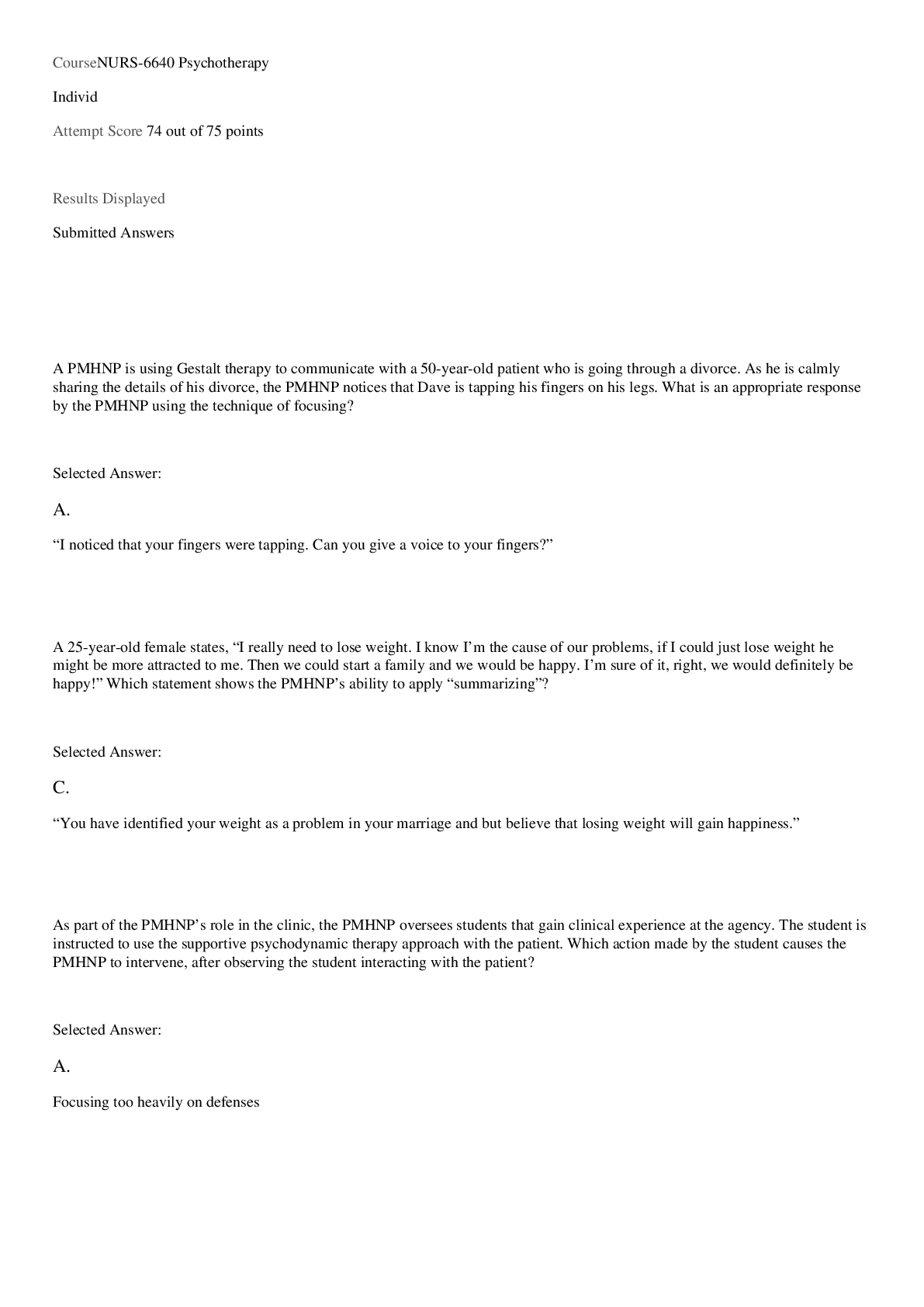






 17.png)

.png)

